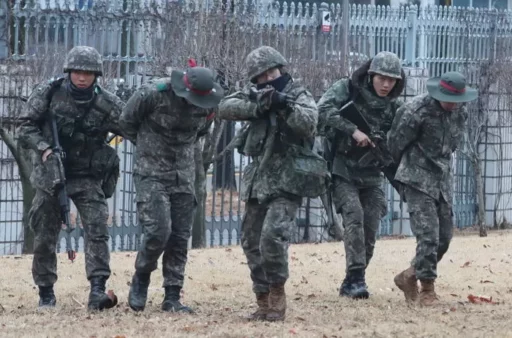**Physical Fitness-Based Promotion Evaluation…Potential Disadvantages for Soldiers in Special Positions**
The Army's recent directive to effectively abolish the automatic promotion system for soldiers has sparked increasing backlash from soldiers and their parents.
The Ministry of National Defense maintains that this is an unavoidable measure for enhancing combat capability. However, there are significant concerns on the ground that soldiers may face disadvantages in promotions based on their positions.
Previously, soldier promotions were based on a set period of service and evaluations, and even if the criteria were not met, delays were limited to a maximum of two months. However, following the revision of the Military Personnel Management Act's enforcement rules last June, the 'automatic promotion' clause was eliminated.

Subsequently, in April, the Army restructured the soldier personnel management regulations, establishing a system to promote private first class soldiers to corporal on the first day of their discharge month and to sergeant on the day of their discharge if their promotions were missed.
However, with this new directive, actual cases of missed promotions could occur, leading to increased anxiety for soldiers and their families.
The promotion evaluation consists of physical fitness assessments, basic soldier evaluations (such as chemical, biological, radiological, and nuclear training, marksmanship, etc.), and subjective evaluations from commanding officers. Particularly, physical fitness assessments carry substantial weight; to be promoted to corporal, soldiers must meet standards of 70 sit-ups (within 2 minutes), at least 56 push-ups, and complete a 3 km run within 14 minutes and 34 seconds. For marksmanship, they must hit 14 out of 20 shots to pass.
As a result, some soldiers in specific positions, such as cooks, drivers, and surveillance operators, who may have sustained injuries during training or have fewer opportunities for physical training, have effectively become disadvantaged. One soldier expressed, "Due to a herniated disc, I’m prohibited from doing sit-ups, but if I fail to meet even one criterion, I can't get promoted, which raises fairness concerns."

Concerns about the phenomenon of 'rank reversal,' where soldiers end up with lower ranks than their juniors, are also being raised. This soldier noted, "The labels of 'concerned soldiers' or 'obsolete' may follow, which could significantly dampen morale."
**Petitions and Protests Continue…Military Clarifies "Most Pass"**
On the 28th of last month, a petition titled 'Opposition to Abolishment of the Automatic Promotion System' was posted on the National Assembly's National Consent Petition Board. As of the 8th, over 29,000 people have agreed to it.
Some parents have even sent protest emails directly to members of the National Defense Committee in the National Assembly. One parent said, "Isn’t this a trick to reduce the salaries of corporals and sergeants? If there’s an issue with promotions, training intensity can be increased; it’s hard to accept administrative exclusions."
In response, a Ministry of National Defense official stated, "Promotion evaluations reflect not only physical fitness assessments but also soldiers' attitude towards military life in totality," assuring that "the majority of soldiers meet the criteria, and rank reversal is rare."

However, there are still concerns that the uniform standards, which do not take into account individual circumstances and position differences, could lead to decreased morale or bias. While the rationale and intent behind the reform of the promotion system are understood, there are calls for more detailed system adjustments to alleviate the concerns of frontline soldiers and their families.
Image source: News1, unrelated stock photo / Photo=Insight


